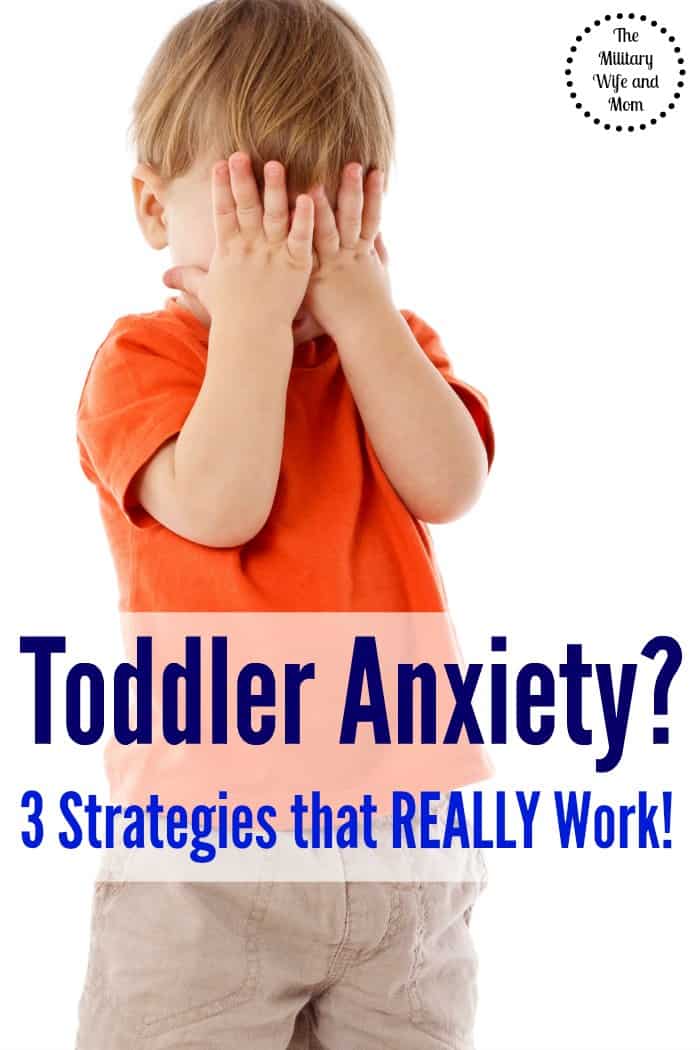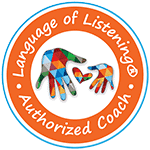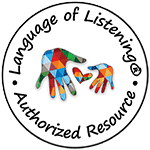Recently there was an opportunity for me to join a local women’s group. I was beyond excited since several times a month I would get to gain fellowship with other women, nurture my often neglected self, and there would be childcare provided for my son. A win-win!
There was an added benefit here: My son would have to opportunity to socialize more with other children and learn to experience a new environment. Initially, it turned out to be a really stressful experience for him. The first time he cried on and off the entire time I was gone—toddler anxiety.
Sure he had babysitters before, but they were always someone that he knew. My sweet toddler felt so unsure about the daycare ladies, and it was hard for him to know that I would, of course, be back in no time at all.
Over the next couple of visits to daycare there are three strategies that helped him feel comfortable and cope better with his stressful feelings. I believe these three strategies could help other toddlers feeling anxious too!
Bring a familiar item of comfort.
My son has a blanket that he sleeps with for comfort. He adores that thing, but we mostly restrict its use to sleep situations only. On special occasions we will use it for long road trips or air travel. It helps put his mind at ease and sleep better during travels. Since daycare was such a stressful time for him, I decided to bring his blanket for him. It offered feelings of safety and security, giving him something familiar to hang on to when he felt anxious and uneasy.
Use storytelling.
Storytelling is a great way to help toddlers process anxiety. It’s especially helpful when they cannot use their words very well to tell a story. Help you toddler make sense of an event before and after it happens.
Research shows that merely assigning a name or label to what a toddler feels literally calms down the activity of the emotional circuitry in a toddler’s brain.
For example…
Before daycare:
“Today you are going to play group. There will be lots of fun things to do. You get to bring your blanket with you. Mommy will drop you off, but mommy will come back really soon.”
We would retell this story several times right before leaving the house and during the drive to daycare. This helped prepare him for what was about to come next in our day’s routine.
At daycare:
Once we arrived I sat in the room with him. Showed him the toys. Helped him feel comfortable as best I could.
“We are at play group now. Here is a fun toy to play with. Can you show me how it works? This is Lisa, she is going to take care of you while mommy is gone. Lisa will keep you safe. Mommy will be back soon. Mommy will always come back for you.”
“You are upset that mommy is leaving. It’s really hard sometimes. We will miss each other. But mommy will always come back for you.”
Again it sounds very repetitive and redundant, but the more times you say it in various ways, the more likely your toddler can start to process the information.
After daycare:
“You played with all the other kids at play group, right? Did you have a fun time at play group? Mommy dropped you off at play group, but mommy came back for you. Now we are going home.”
“You were sad when mommy first left you at play group. Then you felt better and played with the kids and took a nap.”
What kids often need, especially when they experience strong emotions, is to have someone help them make sense of what’s going on. To put things in order and to make these big and scary feelings so they can deal with them effectively. It’s worked wonders for our son.
Want more on Parenting and Motherhood?
- 9 Phrases That Change Life with a Toddler
- How to Help Toddlers Cope with Big Emotions
- Best Essential Oil Uses for Stressed and Tired Moms
I've created a free email series just for you! If you are struggling with teaching your child to listen, this series will help transform your parenting. Yes, really. I've seen my proven strategies work time and time again for parents. I know it can work for you too.
After taking my free email series, you will:
- Learn simple, yet highly effective listening strategies
- Experience a stronger connection with your child
- Enjoy more peaceful parenting days
- Gain more cooperation from your child














Wonderful post! We were just going through something like this today. My son had a doctor’s appointment and totally remembered the last time when he got his shots. I did what you recommended though with the storytelling. I went over what was going to happen and it went well! It also helped that there’s no shots at the 18th month appointment.
We use storytelling A LOT around here. Most times my toddler just wants to feel understood. You know what I mean. Just to know that I get how he feels. Makes a huge difference for him each day. Thanks for sharing.
Lauren, I love the storytelling. I use that a lot with my children and it really does make a difference. It prepares them for what is going to happen, and lets them know the expectations, also verbalizing for them. Even though my girls are well beyond being able to verbalize, this form of talking and preparing validates them, prepares them, and with consistent implementation, helps them know that Mom/Dad will be back just like we said. I think it reaffirms that they are safe and secure and can rely on mom and dad. Great post. Such a darling picture of your little guy! Sweet!
Thanks Elizabeth. I think storytelling will be a long time used method in our home. It truly works. It doesn’t stop the protesting altogether, but it certainly cuts WAY down on the length of protesting and amount of frustration.
yes definitely it works well very worthy activity kids loving and lots of improvement
Thank you for this wonderful post. Does this work with 1 year olds as well? We have a new nanny and my 1 year old goes ballistic if I leave her with the nanny alone and am out of sight for even a minute.